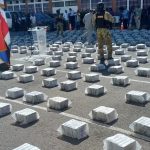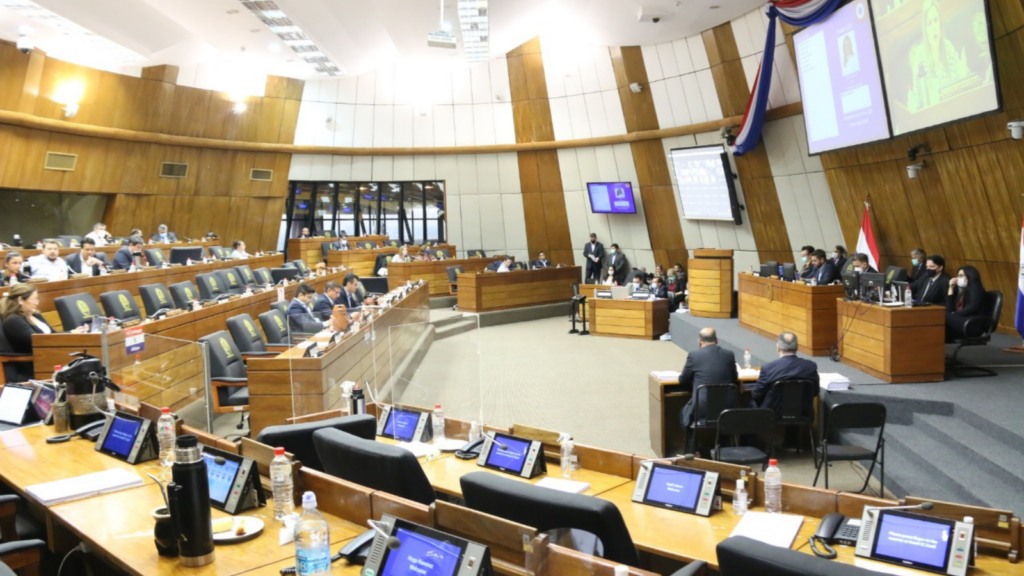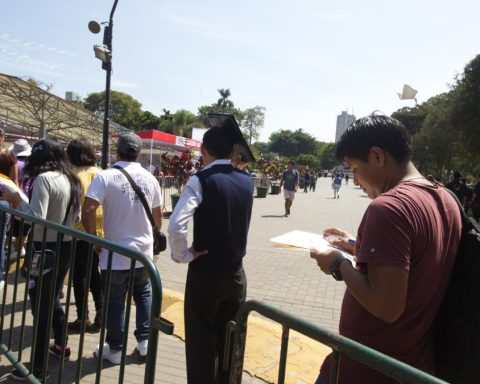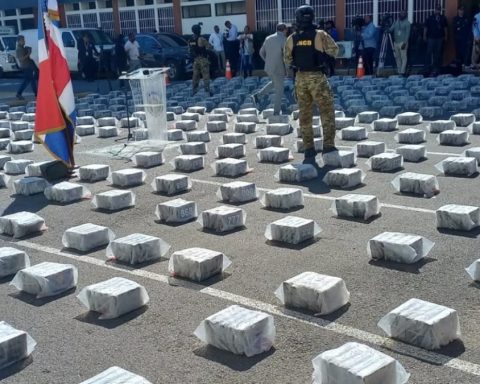World stock markets fell again this Friday due to fears caused by the war in Ukraine, aggravated by the bombing of the largest atomic power plant in Europe, while the price of oil continued its unstoppable rise.
The New York stock market ended the week lower on Friday due to the intensification of the conflict, which overshadowed the good news for the labor market in the United States, where unemployment is close to pre-pandemic levels (3.8% in February).
Thus the Dow Jones index lost 0.53% to 33,614.67 units. The technological Nasdaq lost 1.66% to 13,313.44 points and the S&P 500 0.79% to 4,328.87 units.
In Europe, Paris closed with a fall of 4.97%, Frankfurt lost 4.41% and Milan 6.24%.
The losses were somewhat lower in the London and Madrid trading floors, with decreases of 3.48% and 3.63%, respectively.
In Asia, Tokyo ended down 2.23%, Hong Kong 2.54% and Shanghai 0.96%.
Ukrainian President Volodimir Zelensky accused Moscow of resorting to “nuclear terror” after the fire caused by a Russian attack on the Zapariyia nuclear power plant, the largest in Europe, which caused a fire but without an increase in radiation levels.
There is “no desire” to take risks in financial markets, said Ipek Ozkardeskaya, an analyst at Swissquote bank. Investors are mostly trying to protect themselves from losses, he says.
The safest investments, used as refuge values by operators in times of uncertainty, remained at high levels: an ounce of gold, for example, was worth 1,953 dollars (+0.88%).
– New rise in raw material prices –
Oil had a new day of strong rise this Friday.
A barrel of Brent from the North Sea closed at $118.11, the highest since August 2008, driven by falling Russian exports.
The price of a barrel of Brent for delivery in May thus gained 6.92% in London this Friday.
Since the Russian invasion of Ukraine began, Brent has risen 21.9%.
Meanwhile, in New York, a barrel of West Texas Intermediate (WTI) for delivery in April rose 7.43% on Friday to 115.68 dollars, also a maximum since September 2008.
The war in Ukraine also pushed the price of natural gas to a new all-time high.
Fears of disruptions to exports from Russia, which supplies 40% of gas imports on the continent, caused the European market benchmark, the Dutch TTF, to hit a new record of 213.895 euros per megawatt-hour (MWh). ).
Nickel, a mineral that Russia produces in large quantities, exceeded $30,000 per tonne, a price it had not reached since 2008.
In another sign of weakness in Europe, the euro fell below the symbolic threshold of $1.10, a level not seen since the early months of the covid-19 pandemic. The depreciation was 1.44%, to 1.0908 dollars per euro.
Bitcoin gave up a small part of its gains for the week (-3.39%), at $40,680.











